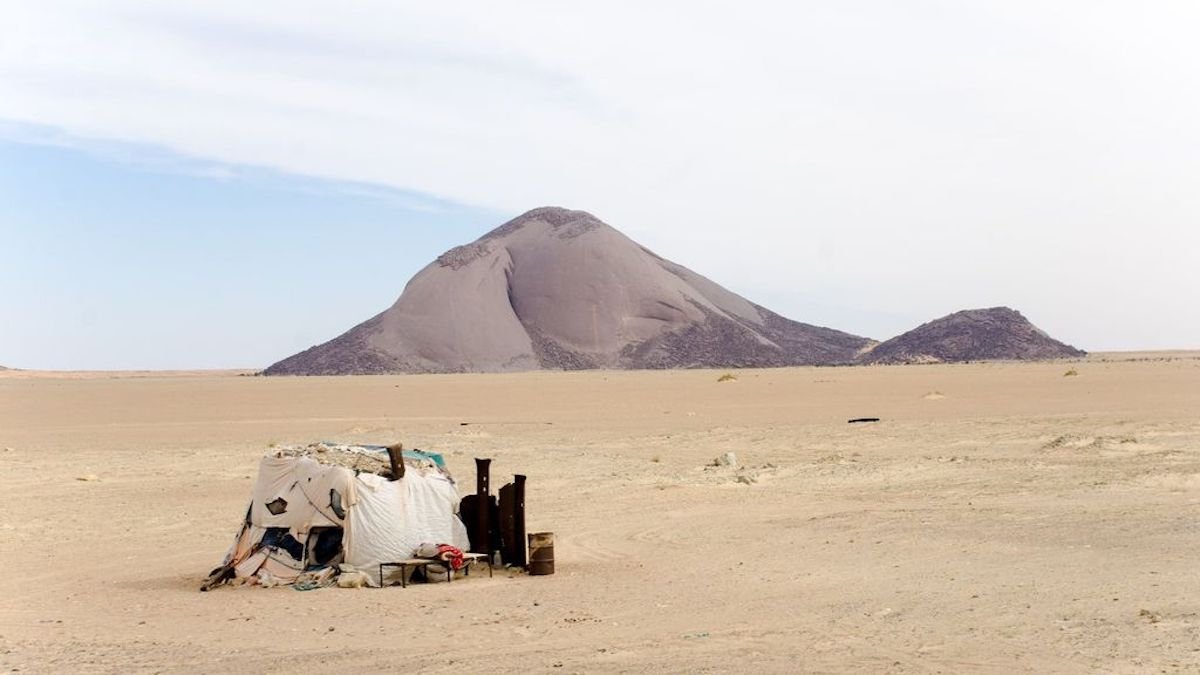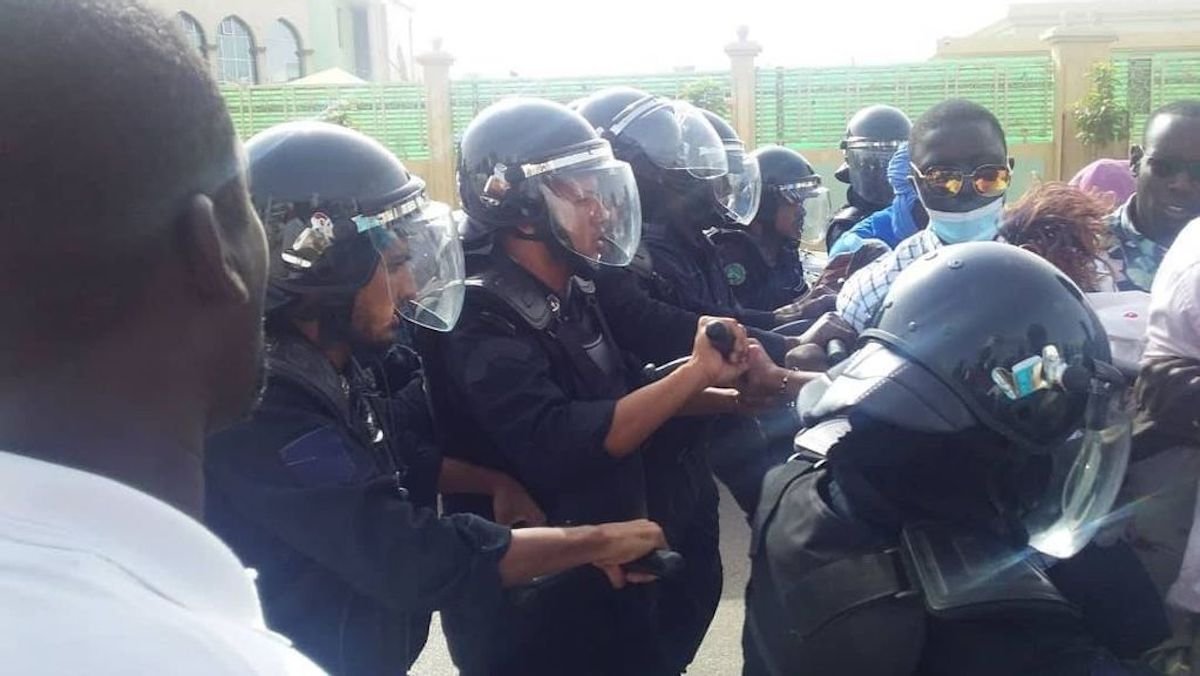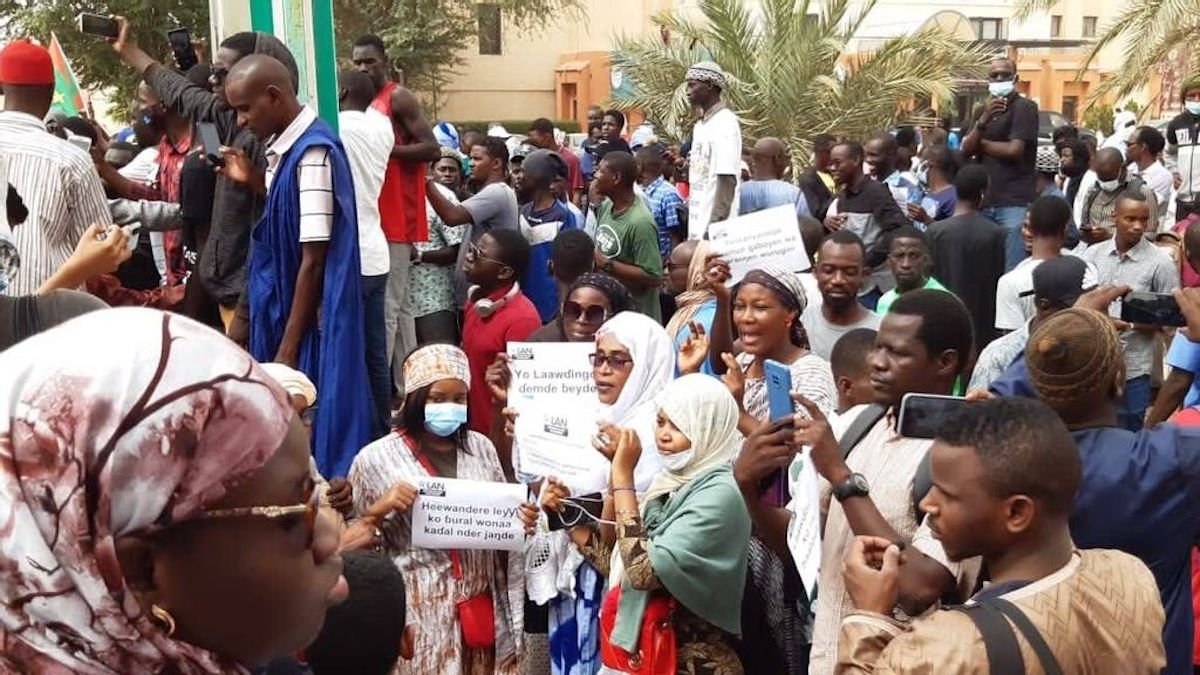Opposition groups have vowed to keep protesting against a law they say will threaten the future of non-Arabic culture in Mauritania. The Mauritanian government says that the new law, passed this summer, is much-needed educational reform.
"[This will] put an end to the alarming deterioration of the national education system," the National Education Minister Mohamed Melainine Ould Eyih said earlier this year in a public appearance.
The law passed in July calls for primary-level classes to be taught in a local vernacular. It also requires the teaching of Arabic to non-Arabic speakers and of at least one national language to Arabic speakers.

Organization of the Officialization of National Languages (OLAN) was founded in March 2022 and claims to have hundreds of active members.
"The day after the publication by the government of the content of the bill, we found it so unfair and so clear about its desire to endorse the choice of the Arabic language as the absolute language of the country;" said Dieynaba Ndiom, awareness officer of OLAN. "The treatment that this bill reserved for other languages is so vague and minimalist that we immediately recognized the Arabization project that has always been supported by the state."
Four languages are recognized by the Mauritanian constitution: Arabic, Pulaar, Soninke, and Wolof. Only Arabic is official, and French is widely spoken. The OLAN movement protested the passage of the law with some of its members being arrested and others injured in a series of clashes with the police. It was unclear if any Mauritanian security forces were injured in the mostly peaceful protests. According to a video posted on social media, some protestors against the law made it into Mauritania's parliament during the consideration of the bill.
"The preservation of cultural and linguistic diversity is at stake. Each of us has the right to fully live our cultural identity, and the assimilation project hatched by the Mauritanian system is criminal and unacceptable," Ndiom said.

Mauritania's cultural demographics make it a bridge between North Africa and West Africa. Five major ethnic groups make up the country. Since its independence in 1960 from France, the cohabitation of its ethnic components has often been a source of cultural tensions.
Mauritania's linguistic policies have always been seen as discriminatory by speakers of minority languages. Several linguists has also noted that in certain societies, a "prestige" language or dialect is often promoted at the expense of others.
In the 1980s, the government of Mauritania forcibly deported over 70,000 members of the Fulani, Toucouleur, Wolof, Soninke and Bambara ethnic groups.

"The linguistic and cultural diversity that we observe today in Mauritania is a heritage built over the last two millennia, under extremely powerful empires that have existed on this part of the continent," said Mouhamadou Sy, a Mauritanian affairs expert and professor at Johns Hopkins University.
Sy points out that Mauritanian identity should draw inspiration from more than the country's Arab cultural ties. For instance, the capital of the empire of Ghana, called Koumbi Saleh, was located in the southeast of present-day Mauritania. During its heyday, the Mali Empire was one of the wealthiest in the world. Other empires and states have also left their imprint on Mauritania's cultural heritage, he said.
"Many sub-Saharan languages reigned over this country long before the arrival of Arabic in the 15th century. All these languages, including Arabic, are a national heritage and a wealth for the present-day country. Contrary to the Arabization that the State has always wanted to promote at the expense of its diversity, we can well adopt a multilingual system like that of Switzerland, which corresponds most to our social and historical reality," Sy said.
OLAN activists have vowed to continue to raise awareness of the issue. The next protest is scheduled for late September.
This story was provided to Newsweek by Zenger News.
Uncommon Knowledge
Newsweek is committed to challenging conventional wisdom and finding connections in the search for common ground.
Newsweek is committed to challenging conventional wisdom and finding connections in the search for common ground.
About the writer
To read how Newsweek uses AI as a newsroom tool, Click here.








